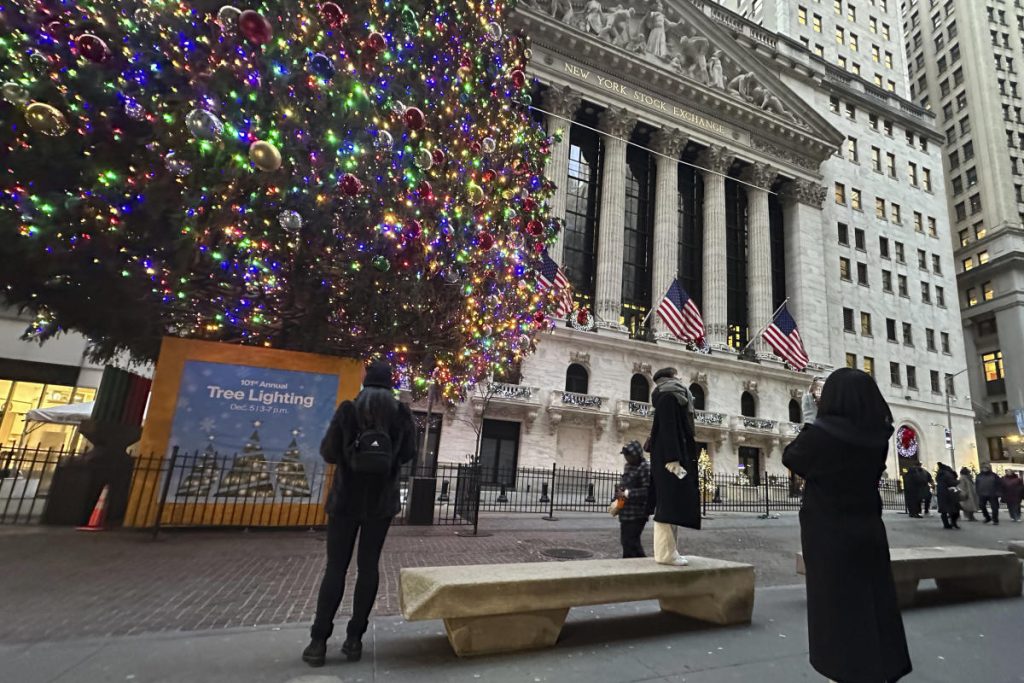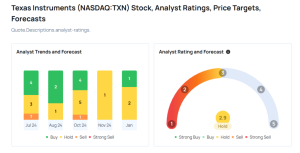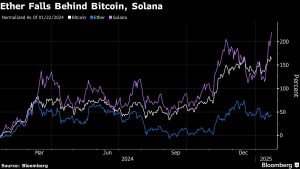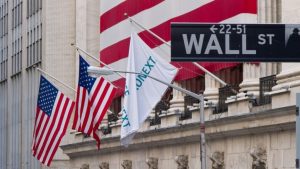
Stock indexes drifted to a mixed finish on Wall Street Thursday, as some heavyweight technology and communications sector stocks offset gains elsewhere in the market.
The S&P 500 fell less than 0.1% after spending the day wavering between small gains and losses. The tiny loss ended the benchmark index’s three-day winning streak.
The Dow Jones Industrial Average added 0.1%, and the Nasdaq composite fell 0.1%.
Trading volume was lighter than usual as U.S. markets reopened following the Christmas holiday.
Semiconductor giant Nvidia, whose enormous valuation gives it an outsize influence on indexes, slipped 0.2%. Meta Platforms fell 0.7%, and Amazon and Netflix each fell 0.9%.
Tesla was among the biggest decliners in the S&P 500, finishing 1.8% lower.
Some tech companies fared better. Chip company Broadcom rose 2.4%, Micron Technology added 0.6% and Adobe gained 0.5%.
Health care stocks were a bright spot. CVS Health rose 1.5% and Walgreens Boots Alliance added 5.3% for the biggest gain among S&P 500 stocks.
Several retailers also gained ground. Target rose 3%, Ross Stores added 2.3%, Best Buy rose 2.9% and Dollar Tree gained 3.8%.
Traders are watching to see whether retailers have a strong holiday season. The day after Christmas traditionally ranks among the top 10 biggest shopping days of the year, as consumers go online or rush to stores to cash in gift cards and raid bargain bins.
U.S.-listed shares in Honda and Nissan rose 4.1% and 16.4%, respectively. The Japanese automakers announced earlier this week that the two companies are in talks to combine.
All told, the S&P 500 fell 2.45 points to 6,037.59. The Dow added 28.77 points to 43,325.80. The Nasdaq fell 10.77 points to close at 20,020.36.
Wall Street got a labor market update. U.S. applications for unemployment benefits held steady last week, though continuing claims rose to the highest level in three years, the Labor Department reported.
Treasury yields mostly fell in the bond market. The yield on the 10-year Treasury slipped to 4.58% from 4.59% late Tuesday.
Major European markets were closed, as well as Hong Kong, Australia, New Zealand and Indonesia.
Trading was expected to be subdued this week with a thin slate of economic data on the calendar.
Still, U.S. markets have historically gotten a boost at year’s end despite lower trading volumes. The last five trading days of each year, plus the first two in the new year, have brought an average gain of 1.3% since 1950.
So far this month, the U.S. stock market has lost some of its gains since President-elect Donald Trump’s win on Election Day, which raised hopes for faster economic growth and more lax regulations that would boost corporate profits. Worries have risen that Trump’s preference for tariffs and other policies could lead to higher inflation, a bigger U.S. government debt and difficulties for global trade.


